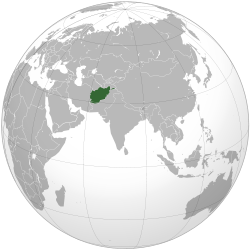Civil War And Instability As An Option In Afghanistan – Analysis
By IPCS
By D Suba Chandran
With preparations for the international withdrawal from Afghanistan after 2014 in full swing, there has been a significant amount of discussion on what is acceptable and what is not. There is a unanimous understanding that instability and a civil war situation in Afghanistan is unacceptable. Why should such a situation not be acceptable? If it is the most likely outcome, and worse still, inevitable, would it not be a better strategy to prepare for the eventuality?
First, the argument that civil war and instability in Afghanistan are unacceptable is flawed, for they are inevitable. It displays cowardice and hypocrisy. It is flawed also because those who argue that it is unacceptable are unlikely to do anything to avoid the situation in Afghanistan. The international community has failed to comprehensively engage in and with Afghanistan. If instability is indeed unacceptable, then they should continue to stay and engage with Afghanistan, instead of withdrawing from the country. Ten years of engagement in Afghanistan, after using it as a proxy during the previous decades, is hardly sufficient.

Second, the counter argument – why should instability and civil war in Afghanistan not be acceptable? Afghanistan has never remained a stable and democratic country; such a notion in Afghanistan is even ahistorical. While democracy never existed in Afghanistan, at least in the form practiced in the neighborhood, stability was more an exception rather than the norm. Afghanistan has always experienced an unstable coalition or a risky balance amongst the multiple ethnic communities and numerous warlords. How does one explain the existence of Afghanistan and the relationship between multiple ethnic groups within the country until the 1970s?
Afghanistan has always lived with an element of instability and lack of democracy. In a sense, it is ironic to debate democracy in Afghanistan; sociologically interpreted, the tribal jirgas could be considered much more democratic and republican in nature than much the western world. Though Afghanistan failed to translate at the national level, the multiple Pashtun tribes, at the grass roots level, have remained until recently substantially democratic through their jirga processes.
Though it may appear chaotic, and at times, even barbaric, this is how Afghanistan has existed until now, and is likely to continue. Stability and democracy as perceived and practiced in the West can never be replicated in Afghanistan. This is the context in which both the US and its European allies lack a basic understanding of Afghan history. In fact, had they been conscious of its history, they would not have invaded the country, or continued to be embroiled in plans to establish order, norm and stability in within decade. Afghanistan is not a place for fast food culture. It is unfortunate that from Alexander the Great to Obama, the West never learnt its Afghan lessons.
The questions that need to be addressed are: what if Afghanistan faces a civil war after 2014, and remains unstable? Is the presence of instability in Afghanistan unacceptable? Or does the imposition of a global jihadi agenda by a non-state actor, or/and the use of Afghanistan as its neighbour’s backyard by state actors, make instability and civil war within Afghanistan unmanageable?
A civil war situation, if led only by the multiple Afghan actors, would be self-contained. One could even crudely relate the situation to the classic balance of power situation in Europe until World War I. However, if external actors – state or non-state – get involved in the instability situation to use it to their advantage, it would magnify the situation. Pakistan and Iran in particular have used different groups within Afghanistan as their stooges, which have made the problem of a cross-border since the 1980s. Finally, when the al Qaeda decided to superimpose its global jihad on the country, it became a global issue.
To conclude, a civil war situation within Afghanistan led by various players within the country need not necessarily be totally unacceptable. Even if it remains chaotic and unstable for an outsider, the multiple Afghan groups should be able to balance each other and present an unstable coalition. What would be unacceptable is the use of Afghan soil by outside actors – both state and non-state. Afghanistan should be left in the hands of the numerous Afghan groups; external involvement should be avoided.
D Suba Chandran
Director, IPCS & Visiting Professor, Pakistan Studies Programme, Jamia Millia Islamia
email: [email protected]
